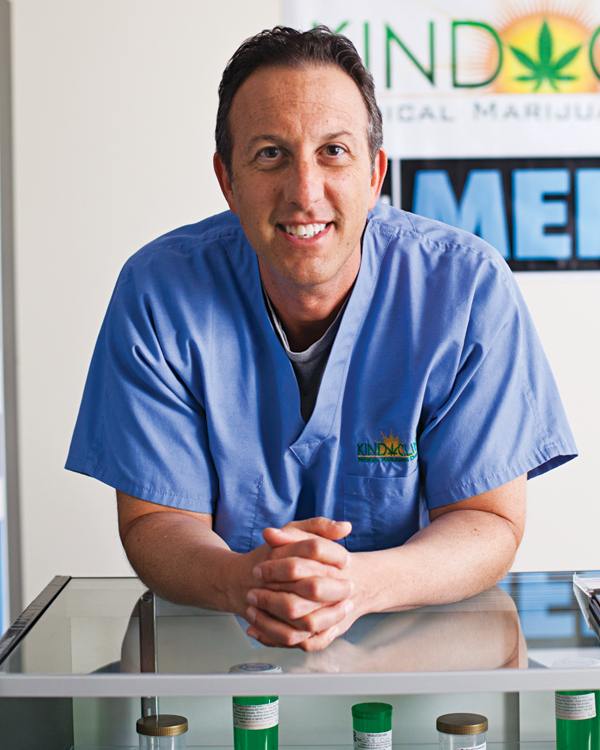Cannabis Commerce: Massachusetts' Medical Marijuana Market
 Bruce Bedrick, CEO of Medbox and Kind Clinics
Bruce Bedrick, CEO of Medbox and Kind Clinics
During those few hours on November 29 when the power went out and Cambridge went dark, 200 people stood in the cold outside the Cambridge Community Center to hear two lawyers, Christian Sederberg and Brian Vicente, talk about medical marijuana, which becomes legal in Massachusetts in January.
Sederberg and Vicente were in town to promote the opening of the Boston office of their Colorado law firm, Vicente Sederberg—to explain, in other words, how the new law works, and to establish themselves as experts who can help their clients seize the business opportunities that will come with medical marijuana. They’ve been through this before, they told the crowd, adding that even though the state regulations for dispensaries haven’t been written yet, they know how to prepare an effective application for a permit to open a medical-marijuana dispensary—35 of which were authorized in last November’s ballot initiative.
What’s in it for the lawyers? “When everyone’s in the gold rush,” Sederberg said, “it’s good to be in the picks-and-shovels business.”
Sederberg and Vicente aren’t alone in sensing that there’s money to be made. “For nearly 40 years,” says Richard Evans, a Northampton attorney, “I never made a dime for my advocacy for the repeal of marijuana prohibition, unless you count the 20 bucks the guy at the hemp store knocked off the price of the shoes I bought.” But now Evans and his law partner, Michael Cutler, are talking to clients who are interested in spending up to $2 million to open and operate dispensaries. Then there’s Bruce Bedrick, the CEO of both the Arizona-based consulting and technology firm Medbox, and Kind Clinics, a turnkey medical-marijuana dispensary that recently opened an office in Natick. He’s consulting on the permitting process, and also grouping together clients with less money to put into partnerships (the minimum is $25,000).
The first dispensary probably won’t open until late 2013 or early 2014, but the market is already here. “A hundred-thousand patients for a state this size would not be unrealistic,” Bedrick says. And it’s only going to get bigger, he says, especially in the ultimate growth scenario: marijuana that’s regulated and taxed for recreational use. “This is going to generate a boon to the economy,” Bedrick says. “It will grow and grow.”


